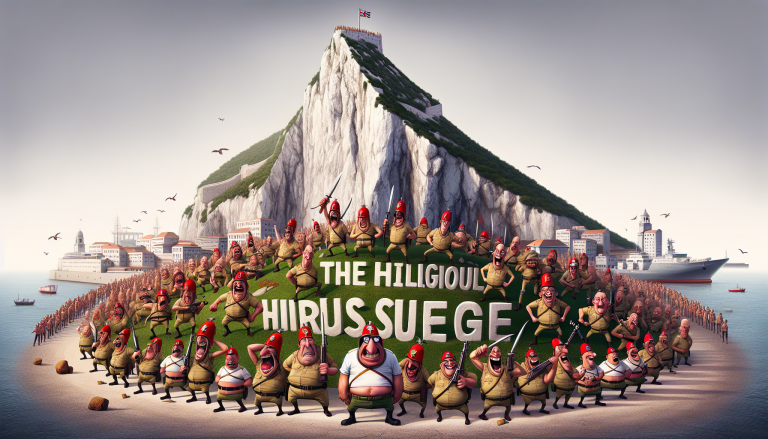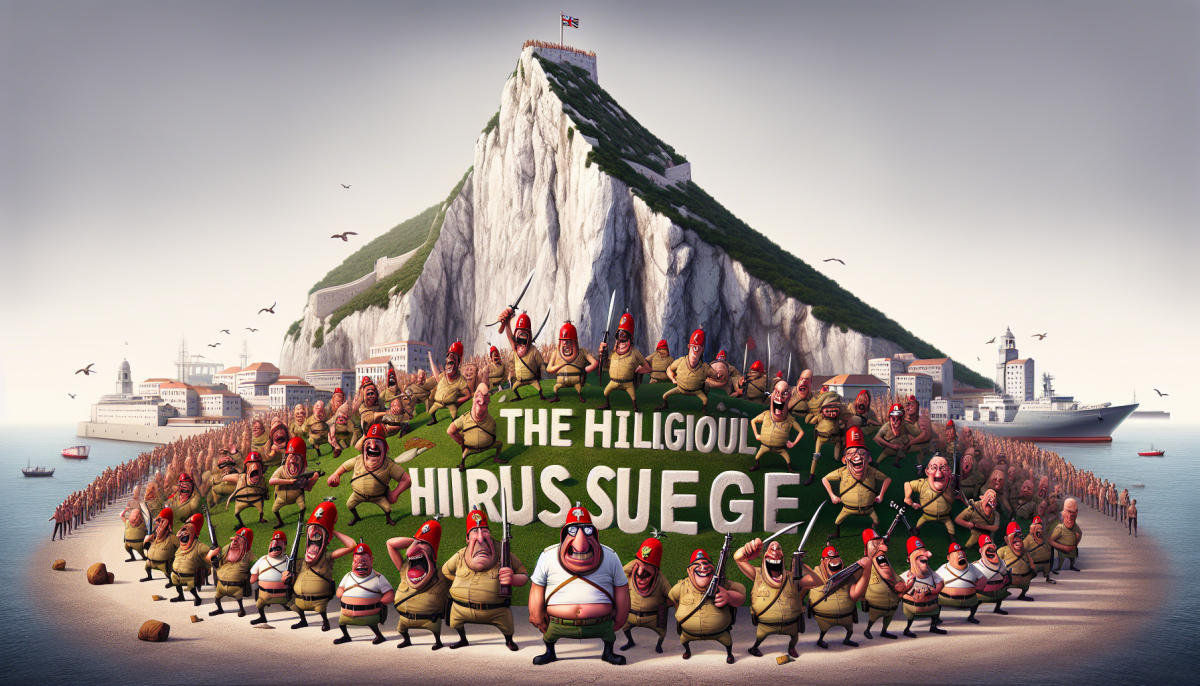When Futility Became Hilarity: The Comically Persistent Siege of Gibraltar
In the grand tapestry of history, there are moments so delightfully absurd that they defy belief. One such tale of futility and laughter is the legendary siege of Gibraltar, a drawn-out military endeavor that has become the poster child for the oft-used phrase “beating a dead horse.”
The year was 1779, and the scene was set along the rugged cliffs of the British-held fortress of Gibraltar. Spain, determined to reclaim this strategic prize, launched what would become one of the most prolonged and comically inept military campaigns in recorded history.
For nearly four years, the Spanish troops, led by the hapless Don Juan de Crillon, laid siege to the Rock of Gibraltar, unleashing a barrage of artillery, mining efforts, and even floating batteries – all to no avail. The British, under the command of the steadfast Governor George Eliott, weathered the onslaught with a mix of steadfast resolve and a keen sense of humor.

A Siege of Blunders and Bloopers
As the months dragged on, the Spanish efforts became increasingly absurd, earning them the dubious distinction of “beating a dead horse” in the annals of military history. The first blunder came when the Spanish engineers, in a moment of sheer brilliance, decided to construct their floating batteries out of wood – a material hardly suited to withstand the relentless British bombardment.
Undeterred, the Spanish pressed on, only to watch their grand floating fortresses go up in flames, courtesy of the British’s incendiary devices. Undaunted, they returned with an even more audacious plan: to build a series of subterranean tunnels and mines, hoping to catch the British off guard. Alas, their efforts were thwarted once again when the wily Governor Eliott ordered his troops to simply dig deeper, rendering the Spanish tunnels utterly useless.
As the siege wore on, the Spanish forces became the butt of countless jokes, with the British troops taunting them mercilessly from the safety of the Gibraltar cliffs. One particularly infamous incident involved the Spanish attempting to scale the fortress walls using crude ladders, only to be met with a barrage of flaming projectiles that sent them tumbling back down in a fiery display of ineptitude.
The Futility of Persistence
The Spanish, however, refused to admit defeat, stubbornly continuing their efforts despite the mounting evidence of their own incompetence. Time and time again, they tried new tactics, each one more ludicrous than the last, earning them the reputation of the ultimate “dead horse beaters.”
One particularly comical attempt involved the deployment of hundreds of monkeys, which the Spanish hoped would scale the cliffs and wreak havoc on the British defenders. Alas, the wily primates had other plans, scampering off to enjoy the Gibraltar sunshine rather than engaging in the Spanish’s foolhardy scheme.
As the years dragged on, the siege became a source of endless amusement for the British, who took to holding elaborate parties and dinners as the Spanish continued their futile efforts. The Gibraltarians, for their part, embraced the absurdity of the situation, with one resident famously quipping, “We have nothing to do but eat, drink, and be merry.”
The Enduring Legacy of Futility
Finally, in 1783, the Treaty of Paris brought an end to the conflict, with the Spanish admitting defeat and the British retaining control of Gibraltar. The siege had become a cautionary tale, a shining example of the dangers of stubbornly pursuing a hopeless endeavor.
Today, the phrase “beating a dead horse” remains a testament to the enduring legacy of the Spanish siege of Gibraltar. It serves as a reminder that sometimes, the most prudent course of action is to acknowledge defeat and move on, rather than clinging to a futile course of action.
As for the Gibraltarians, they continue to regale visitors with tales of their ancestors’ triumph over the bumbling Spanish forces, reveling in the knowledge that their fortress stands as a testament to the power of perseverance and the importance of not taking oneself too seriously. After all, as one Gibraltarian historian so eloquently put it, “When the world is on the brink of collapse, it’s always best to have a good laugh.”
